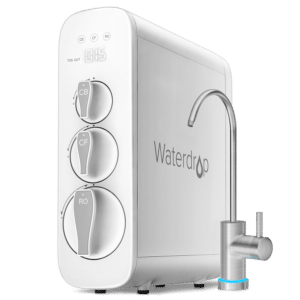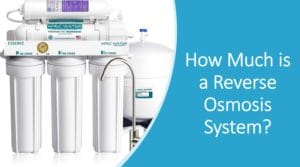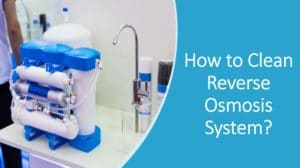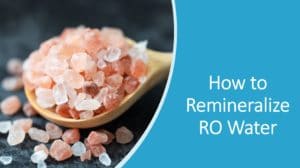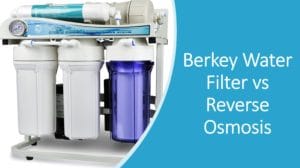When it comes to water treatment, reverse osmosis vs water softeners are 2 most common considerations. While they both achieve the same goal; provide clean water, they differ in their mode of operation.
Reverse osmosis focuses on minerals while water softeners remove the minerals that causes hard water.
Reverse Osmosis vs Water Softener
The major difference between reverse osmosis and water softener is that reverse osmosis removes contaminants, small particles and minerals from water while water softener removes minerals that causes hard water.
What Is Reverse Osmosis?
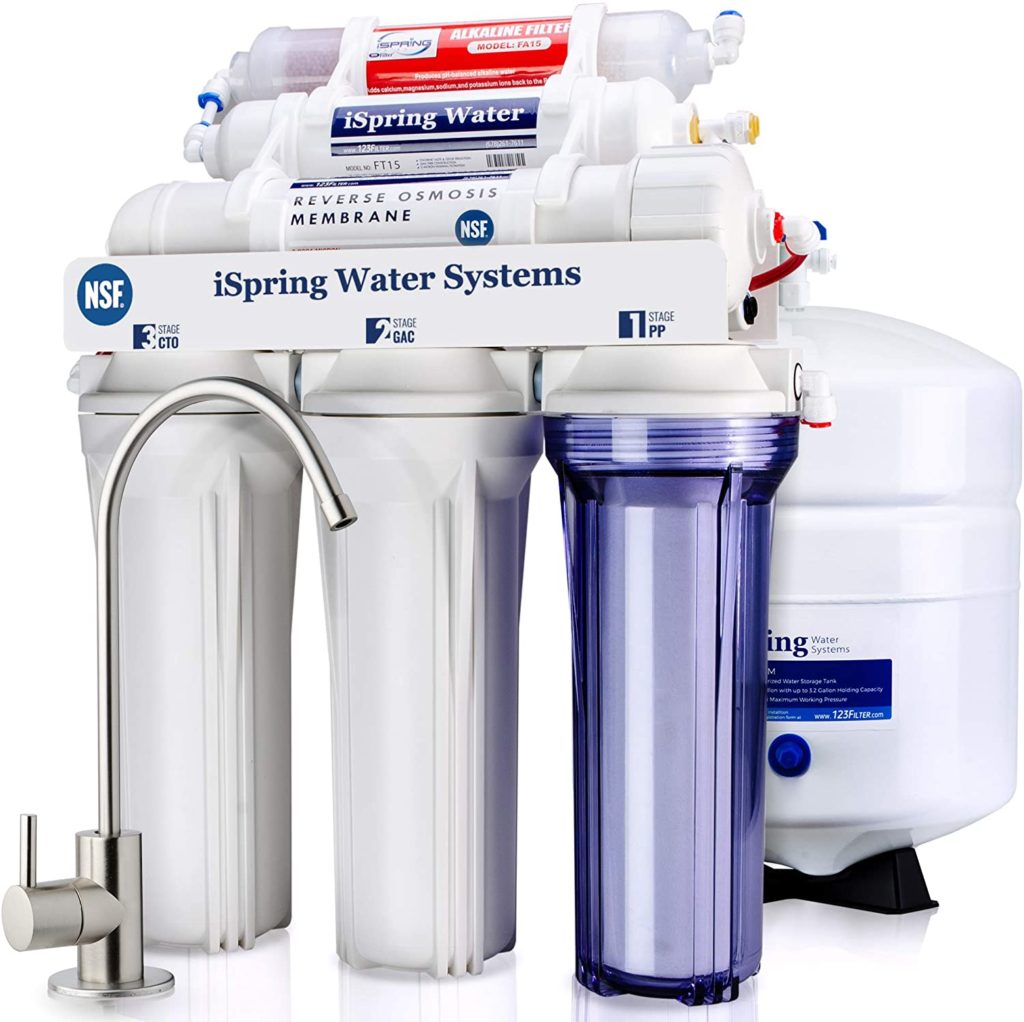
Reverse osmosis is a water filtration process. It uses a membrane to remove contaminants, small particles, and minerals from water. The water is forced through several membranes, which allow only the water to pass through and remove everything else.
Reverse osmosis is intended to make your water safe and better-tasting for drinking and cooking. You typically don’t use a reverse osmosis system on all of the water in your house. Instead, it’s usually used just in the kitchen where you need a higher level of purification.
What Is a Water Softener?
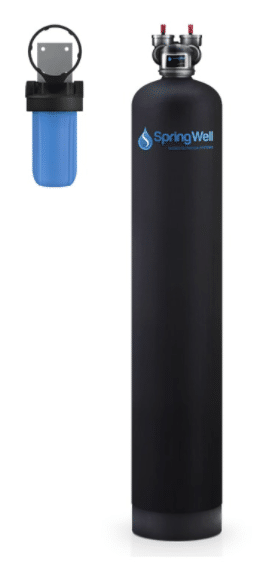
A water softener is a water treatment process that’s used to make hard water soft. It uses a filtration system and salt to soften water. Water softeners usually only remove magnesium and calcium, the two main culprits in hard water.
Hard water is destructive to your plumbing and prevents your water from cleaning your home as well. It can even make your hair dull after washing.
Which Is Better?
When it comes to water softener and reverse osmosis, it’s not a question of which is better. Instead, it’s about choosing the system that’s better for your needs. If you have water that has a lot of contaminants or an off taste, then you may want a reverse osmosis system. These systems will purify your water, make it safer to drink, and improve its taste.
If you have issues with hard water, then you’ll want to get a water softener system (see water softener brands comparison). This system will remove the calcium and magnesium from your water to make it softer, but it won’t remove anything else.
Get a reverse osmosis system if you have issues with contaminated or bad-tasting water. Get a water softener if your water is hard. If you have issues with both, then you’ll probably want to buy both. We’ll discuss why you may need both systems below.
Related: Water Filter vs Softener
Does Reverse Osmosis Soften Water?
A reverse osmosis system will soften your water, but it’s not always necessary.
As your reverse osmosis system works to filter water through its membranes, it’ll remove the chemicals that makes your water hard, namely calcium and magnesium, along with everything else. Reverse osmosis water is softer than water from a regular tap. However, you shouldn’t let your reverse osmosis system take care of both contaminants and hard water.
If your only issue is hard water, you probably don’t want to worry about a reverse osmosis system. While it will make your water softer, hard water takes a toll on a reverse osmosis system and will cause it to wear out sooner. It also wastes more water, making it costlier in the longer run.
Can You Use Reverse Osmosis and a Water Softener Together?
If you have issues with both hard water and contaminated or funny-tasting water, you should use a reverse osmosis system and a water softener together. There are many advantages to using the two in conjunction and you’ll often save money in the long run.
First, reverse osmosis only takes care of the water you drink and is usually only located in the kitchen. A water softener will soften all of the water in your home. It’ll make your water better for cleaning and washing your hair, while also protecting your plumbing from the effects of hard water.
Further, if you have hard water, a water softener will increase the longevity of your reverse osmosis system. Since hard water makes a reverse osmosis system work over time, softening the water first will lighten its load. The two working in conjunction will give you soft, clean water without damaging your reverse osmosis system or plumbing.
Related: Is Reverse Osmosis Water Good or Bad?
Does Reverse Osmosis Remove Salt From Water Softener?
Many people are concerned about salt in their water after it goes through the water softening process. Water softeners use sodium to bind with the magnesium and calcium ions and flush them out of your water, leaving it softer.
While the sodium does remain in your water, it’s a negligible amount. The water won’t taste salty and you won’t have to worry about getting too much salt from your water. The sodium content is higher than what you’ll find in water that hasn’t been through a water softener, but it shouldn’t make much of a difference.
If you’re concerned about the salt left in your water, the good news is that reverse osmosis will remove it. Once your water has gone through the water softener, it’ll then pass through the membranes of the reverse osmosis system. These membranes will remove the sodium along with other particles.
Conclusion
When it comes to reverse osmosis vs water softener, it’s difficult to make a comparison. One isn’t necessarily better than the other. The two systems serve two different functions. Once you figure out the problem with your water, then you’ll know what system to get.
Unless your water is already soft, your best option is likely to be a combination of reverse osmosis and a water softener system. These two systems work together to make your water softer, cleaner, safer for drinking and will improve the taste.

